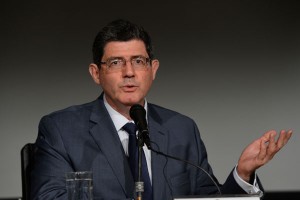
The Minister of Finance, Joaquim Levy, was at the beginning of February at the National Council for Farm Policy (Confaz). In explaining to the state finance secretaries what the government's objectives are this year, that is, to spend less and collect more, the minister recommended that the states do their part to contribute to the fiscal adjustment.
Levy pointed out that the lack of rules for tax incentives granted by the states creates legal uncertainty, hindering the recovery of confidence and the resumption of growth. According to the minister, the government will support a consensus in relation to the validation of the incentives already granted, which is decisive to remove the legal uncertainty resulting from changes in tax incentive policies.
Some governors have already anticipated the minister's request. In Mato Grosso, a working group formed by representatives of the Secretariats for Economic Development (Sedec) and Finance (Sefaz) and the State Comptroller General was created to audit the tax incentives granted. The conclusions of the investigations are expected to be announced in April.
Mato Grosso also created another working group, formed by representatives of Sedec, Sefaz and the Secretariat of Planning (Seplan) to study a new policy model to attract investments. According to the secretary of Economic Development, Seneri Paludo, "the important thing is to create a new policy to attract investments and not just a policy of fiscal incentive".
Amid the discussion about rules for tax incentives and tax collection, the government of Espírito Santo estimated that it will stop collecting about R $ 1 billion this year because of the tax waiver of the companies being taxed. The new secretary of Finance, Ana Paula Vescovi, has reiterated the need for fiscal adjustment measures. Among the measures discussed are cutting public funds, reducing the transfer of funds to city halls and even increasing taxes.
The governor of Rio de Janeiro, Luiz Fernando Pezão, stated at the end of January that he “intends to suspend the tax benefits granted to the Petrochemical Complex of the State of Rio de Janeiro (Comperj), which benefit Petrobras. With these benefits, Petrobras collected R $ 2014 million less in ICMS in 400 than in 2013. “We cannot live without these resources. They are fundamental for the collection of the State ”, affirmed Pezão.
This is the time to deepen the national discussion on taxes and incentives, which have already served the purpose of attracting investments, and it is expected that Congress, on the return from recess, will advance in the negotiations for the reform of the ICMS. The proposal under evaluation provides for a gradual reduction in interstate ICMS rates, over a period of eight years. "The country needs this agreement," said recently the coordinator of Confaz and Secretary of Finance of Pará, José Tostes Neto. “The worst scenario would be to leave the binding summary of the Federal Supreme Court (STF) before the agreement.”



